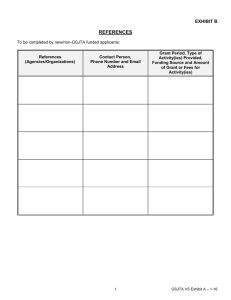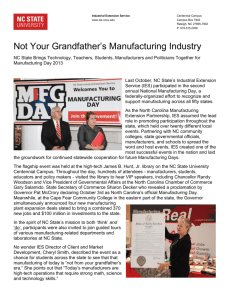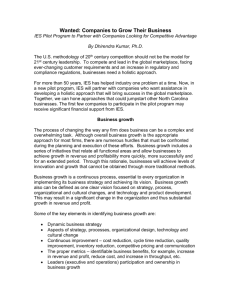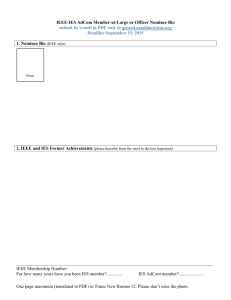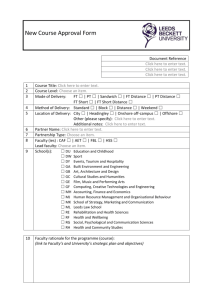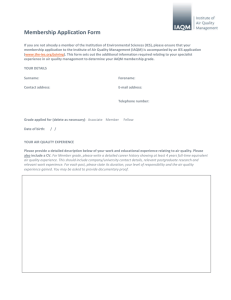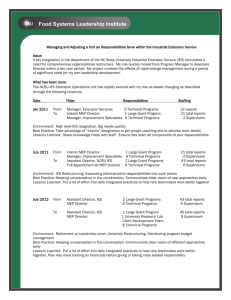INDUSTRIAL ENGINEERING
advertisement
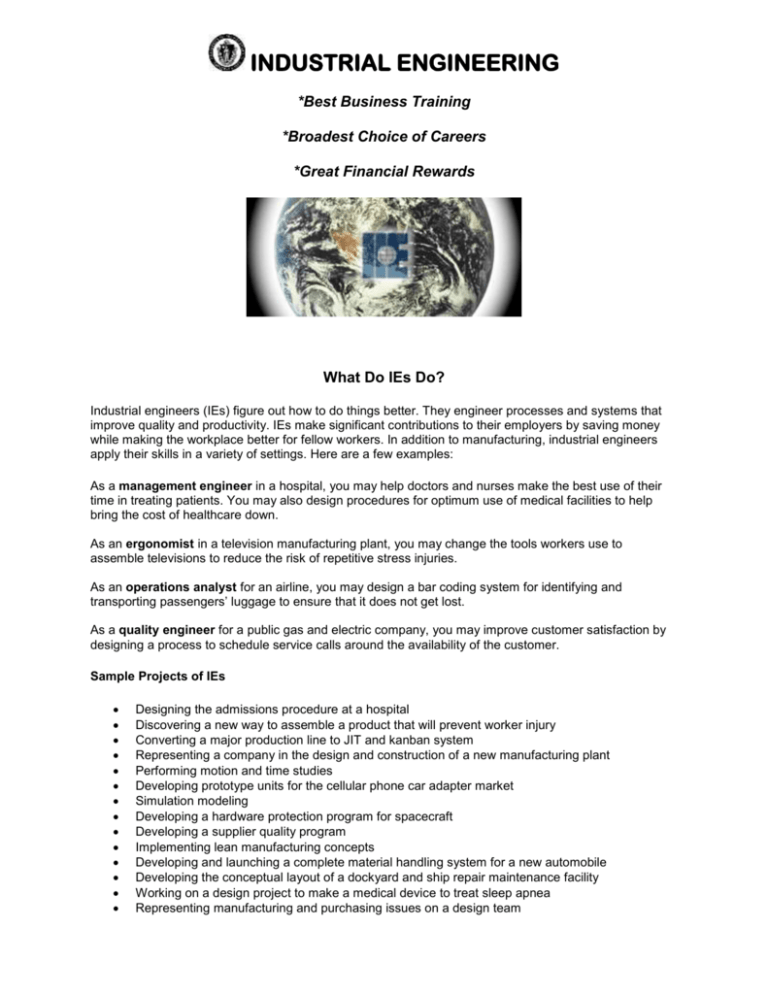
INDUSTRIAL ENGINEERING *Best Business Training *Broadest Choice of Careers *Great Financial Rewards What Do IEs Do? Industrial engineers (IEs) figure out how to do things better. They engineer processes and systems that improve quality and productivity. IEs make significant contributions to their employers by saving money while making the workplace better for fellow workers. In addition to manufacturing, industrial engineers apply their skills in a variety of settings. Here are a few examples: As a management engineer in a hospital, you may help doctors and nurses make the best use of their time in treating patients. You may also design procedures for optimum use of medical facilities to help bring the cost of healthcare down. As an ergonomist in a television manufacturing plant, you may change the tools workers use to assemble televisions to reduce the risk of repetitive stress injuries. As an operations analyst for an airline, you may design a bar coding system for identifying and transporting passengers’ luggage to ensure that it does not get lost. As a quality engineer for a public gas and electric company, you may improve customer satisfaction by designing a process to schedule service calls around the availability of the customer. Sample Projects of IEs Designing the admissions procedure at a hospital Discovering a new way to assemble a product that will prevent worker injury Converting a major production line to JIT and kanban system Representing a company in the design and construction of a new manufacturing plant Performing motion and time studies Developing prototype units for the cellular phone car adapter market Simulation modeling Developing a hardware protection program for spacecraft Developing a supplier quality program Implementing lean manufacturing concepts Developing and launching a complete material handling system for a new automobile Developing the conceptual layout of a dockyard and ship repair maintenance facility Working on a design project to make a medical device to treat sleep apnea Representing manufacturing and purchasing issues on a design team How Do IEs Benefit Society and Business? Industrial engineering has provided a systematic approach to streamline and improve productivity and efficiency. Benefits that can be linked directly to the work of industrial engineers include: Leaner, more efficient and more profitable business practices while increasing customer service and quality. Improved efficiency. This improves competitiveness, profitability, and reduces resource requirements. The idea of setting labor or time standards. The original production lines in the 1920s were successful because of IEs. The IE profession is timeless and can be molded to fit the times and the place. Good organization and improving productivity - these improvements eliminate or reduce some of the frustrations of life and are essential to the long term health of business. Increased ability to do more with less. Making work safer, faster, easier, and more rewarding. Providing a method by which businesses can analyze their processes and try to make improvements to them. It is focused on optimization - doing more with less - and helps to reduce waste in society. Increased cycle time and throughput thus helping more people get their product quicker. Assistance in guiding society and business to care more for their workforce while improving the bottom-line. Showing ways to improve the working environment, improving efficiencies, and teaching people about ergonomics. Making the world safer through better designed and easier to use products. Reducing costs associated with new technologies, thus allowing more of the population to better their lives by being able to afford technological advances. Where Do IEs Work? Manufacturing firms and service industries hire a significant number of IEs. Today, more and more businesses hire IEs in areas like sales and marketing, finance, information systems, and personnel. Other industries employing IEs are hospitals, airlines, banks, railroads, and social services. Amazon.com, Chief Engineer American Greetings Corp., Vice President of Manufacturing Andersen Consulting, LLP, Senior Manager, Capacity Modeling and Simulation Anheuser-Busch Co., Manager of Corporate Financial Planning Boston Globe, Vice President of Production Bristol-Myers Squibb Co., Director of Strategic Planning Clairol Inc., Director of Worldwide Operations Coca-Cola Enterprises Inc., Director of Planning & Logistics Covenant Health, Director of Management Engineering FedEx, Manager of Process Engineering Hewlett-Packard, Facilities Planning Engineer Intel Corp., Corporate Ergonomic Program Manager Reebok International Ltd., Director of Engineering The Gap Inc., Director of Operations and Engineering The Home Depot, Chief System Engineer UPS, Ergonomics Program Director Wal-Mart Stores Inc., Logistics Planning Manager Walt Disney World, Manager of Procurement Services
